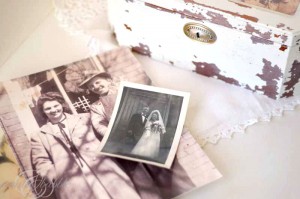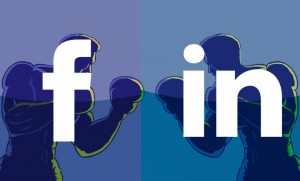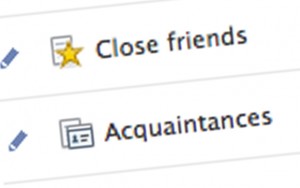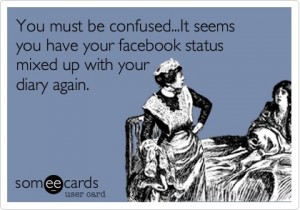Today is the big day; either you get the job or lose it. You give your first interview in a few hours– Naturally, it’s nerve-wrecking. No matter how much you try to distract yourself, your thoughts keep going back to the scheduled interview. How will the interviewer be? How can I make him like me?
These interviews are a people’s game, we all know that; and first impressions matter when you’re being judged [critically – not to scare you or anything]. Unfortunately, there is no way you can tell the personality of your new employer/HR before meeting them. Wait – that was ten years ago. Today, you race to your laptop and type in your interviewer’s name and voilà, their story is yours to read – On LinkedIn you know how intimidated you need to be, on Facebook you can tell if they have a dog [maybe you wear a t-shirt that says ‘I love Dogs’ – it might work, but don’t], on Twitter they’ll lay their soul bare for you so you know not to say something that might offend them politically/religiously. On Instagram, you know what food they like [lunch interview?].
They keep saying we’re detached because of the internet. We dug in and found answers: How do we use the internet and social media in a healthy way? Where do we draw the line between necessary information and TMI?
Do: Pen pals Intimacy

If you’re old enough, you’ll remember a time when PenPals were the most intimate relationship you could have – the intimacy of telling this person everything about you, yet the allure of being physical strangers. We’re inclined to draw a parallel between that and online friends [we’re not referring to the number on your Facebook Friends’ list, we’re talking about the people you talk to the most online]. While it is true that face-to-face interactions have a certain texture that cannot be imitated by conversations online, but that doesn’t mean all online interaction is detached and surface-level [here, we refer to the online Penpals].
In addition, there’s a lot to be said about the convenience and comfort of connecting with another individual when the social awkwardness and anxiety of meeting in person is removed: you can choose to reveal your deepest, darkest secrets in complete confidence. It is no surprise then that an estimated one in four people socialize online. A study at the Athabasca University involved getting graduate students to have a mediated discussion online and offline. Results showed that “the online communications group roughly resembled the face-to-face group, but also differed subtly.. [surprisingly] there was less negative interpersonal interaction”. Although not conclusive, this study explores online interaction and does not delve into overuse. The thing to remember is: a healthily limited number of conversations online in and of themselves do not affect bonding negatively.
Don’t: Have more than 20 chats open at the same time

Online networking is brilliant, but should ideally be used as a support system. It cannot replace face-to-face interactions. Especially for teens, overuse of social media makes them less sensitive emotionally and evidence suggests – lowers the quality of conversation with their peers. We need to be acutely aware when we’re engaging in idle conversations [not all idle conversations are shallow] and then, consciously, cut the small talk. You don’t want to be that person at the table who’s missing out on some intense real-time bonding because you’re obligated to reply to 60 different versions of ‘What’s up?’
Do: Get to know acquaintances without fear [and use social media as support]
So, how do online interactions help face to face interactions? When you first meet someone, you take note of their Facebook name, their Twitter handle, their Instagram username and sometimes their Whatsapp numbers.
It happens gradually, through comments and posting on each other’s walls, planning to go for that insane costume party everybody is on about. Let’s face it: for a lot of people, real-time interactions come with a bit of social pressure, and your inbox on Facebook or Whatsapp takes the edge off. The cushion here is you’ve already had conversations, so there’s no ‘awkward silence’ – you know each other before you hang out alone.
Don’t: Compare your real self to someone’s virtual self

This is a no-brainer, but the number of studies and reports out there about the internet and the rising phenomenon of jealousy, online facades and the resulting low self-esteem is astounding. Here, here and here. Comparing yourself to that thrice-filtered, carefully edited image of your friend, which was taken multiple times at the right angle in the right light, to your un-made up groggy morning reflection – you see the trouble?
Do: More LinkedIn, Less Facebook

LinkedIn, with the social user-friendly element of Facebook minus the selfies & meme posts, is a haven if you want to connect with someone professionally. If you’re job-hunting, it is your best friend: the connections you make can lead to job opportunities, so instead of updating your Facebook profile, shift your focus to cleaning and decorating your LinkedIn one. With a larger base of first degree connections, you can easily get an intro [with a crafty and convincing note] to that HR manager you’ve been trying to hunt down. Once you’re on their connections, you’re on their radar. As mentioned in this Forbes article, you can ‘Get the 411 on your next boss” or “Find your hiring manager” on LinkedIn – it’s productive and keeps your attention on improving professional skills.
Don’t: Limit socializing for work to online platforms

Even if you’re socializing for work, arrange for a one-on-one meeting with people who you think will be beneficial to your career/business. Mixing pleasure with business isn’t a taboo any more, it’s a recommendation – you need to leave your client/potential employer with a positive impression offline, and not resort to popping up in their inbox every time you need something.
Do: Be real

Social media has created a pressure to present ourselves in the best possible way – our virtual aspirational selves. Amy Jo Martin, founder and CEO of Digital Royalty, says “Social media is changing the way we communicate and the way we are perceived, both positively and negatively. Every time you post a photo, or update your status, you are contributing to your own digital footprint and personal brand.” Let’s think about this for a minute: How many times have we untagged ourselves from an unflattering picture even though we had a memorable time? It’s not uncommon to shrivel under the judgment of a thousand scrutinizing eyes, but precisely because of it, we need to turn this around. Become ‘non-judge-able’, so to speak, by not placing too much emphasis on pristinely preserving your virtual image. This is an inside job.
Don’t: Over-share [it’s cringe-worthy]
Agreed that the people who are guilty of this charge will never admit it, but uploading pictures of gore injuries, talking about your poop this morning, posting vague statuses because you can’t say it out loud [we’ve all done it], and not really being anywhere when you’re physically there are all warning lights. It’s always nice to look at your Newsfeed and see an old friend’s post pop up, so you know what they’re up to, but it’s different when you’re sharing the insides of your bedroom and body with almost-strangers too. Research shows that 39% of employers use Facebook to ‘screen’ potential candidates – Do you want to lose a job because you documented that single moment of anger and irrationality? No. As it is beautifully put in this Huffington Post article:
“Think, or more specifically, think ahead. Imagine the ripple effect of the piece of information you are about to share. Imagine your mother, children, partner/spouse, boss and any other relevant person knowing what you are about to divulge. Imagine meeting new people who possess the piece of information you are about to disclose. Think about that information in the public domain today, and think about it in the public domain decades from now. Still OK with it? Then wait, and think again.”
Featured Image: foresightinvestor.com
We hope that helps in keeping your sanity in the dizzying age of social media. We’d love to hear what you think in the comments below: Do you agree with all of the above? Do you disagree?





![Social alienation is a sharp tactic in the toolkit of domination [although, here it is the extension of female subordination]. Photo by Hans Van Den Berg/ flickr.com](https://b-change.me/wp-content/uploads/2018/01/1sTnAkZgJEx1Yb6fctMyVuA-570x300.jpeg)






